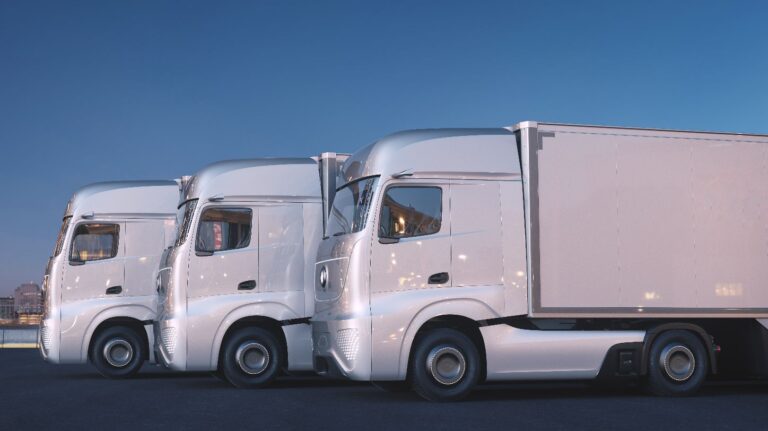UK-based consortium eFREIGHT Autonomous has announced that it has secured funding from the UK government through the CAM Pathfinder Feasibility Studies (FS) Competition delivered by Innovate UK and Zenzic.
This was one of 14 projects selected to receive funding through the competition. The consortium will ‘explore the role of autonomous HGVs in the UK from the perspective of fleet operations’.
By evaluating today’s technology and understanding the direction of future developments, eFREIGHT Autonomous intends to use this trial to ‘identify potential use cases, assess commercial viability, and examine the infrastructure and legislative frameworks required to enable autonomous trucking in the UK’.
Voltempo Group, a specialist in EV charging, is leading the consortium. Other organisations involved in the consortium include Berkeley Coachworks and Connected Places Catapult.
Sir Vince Cable, former secretary of state for business, innovation and skills, is chairman of the consortium. Cable’s relationship with autonomous vehicles goes back to 2014, when he announced measures to facilitate the introduction of driverless vehicles on UK roads from January 2015.
Commenting on this latest funding announcement, Cable said: “We are delighted to have been selected to take part in the CAM Pathfinder feasibility study to research, evaluate and help shape the future of UK freight transport from the perspective of fleet operators.
“Autonomous technology offers a chance to unlock innovation across transport, strengthen the UK supply chain and rethink logistics that are cleaner, greener and better for local communities and better for business.”
Michael Boxwell, CEO of Voltempo, added: “Autonomous vehicles are already in everyday use in parts of China and the US, and trials here in the UK, such as self-driving shuttles in Birmingham and autonomous buses in Scotland, are paving the way for wider adoption by 2027 with the full implementation of the Automated Vehicles Act.
“For freight operators working on tight margins, this is a chance to understand this transformational technology, help shape its future rollout and explore the real cost-saving opportunities it can deliver for the UK supply chain through improved efficiencies.”
Work on the eFREIGHT Autonomous feasibility study project is due to begin in the summer of 2025, with results to be delivered early 2027.
At the end of the project, eFREIGHT Autonomous will produce reports and briefing documents that outline the roadmap for autonomous heavy road freight vehicles, ‘identifying potential opportunities, risks, costs and timescales for autonomous vehicles for the road freight industry’.
Alongside the study, Berkeley Coachworks has plans to develop autonomous HGVs at its manufacturing site and test track in Trecwn, Pembrokeshire.
Following the publication of its reports, eFREIGHT Autonomous plans to ‘examine the opportunity to create real-world trials with autonomous HGVs, running on UK roads, with the potential to have autonomous HGVs operational by the end of 2027’.
For more on the future of autonomous delivery vehicles, check out this feature in the August issue of Logistics Manager – out now!
On top of this, there are features on drones in logistics and ethics in the supply chain, and the shortlist for the 2025 Supply Chain Excellence Awards – read the August issue for free online today!







